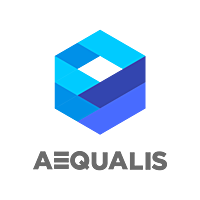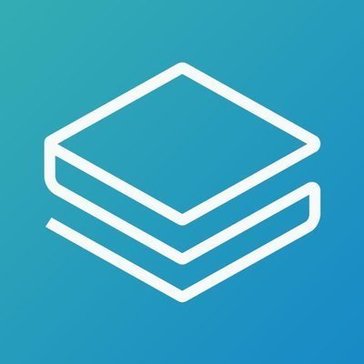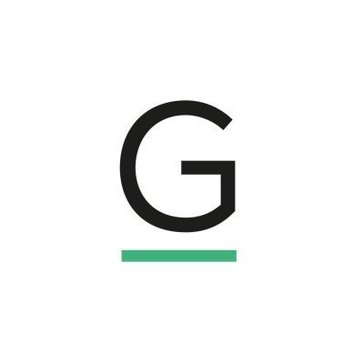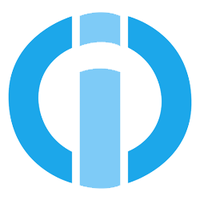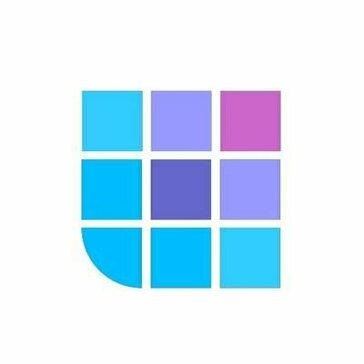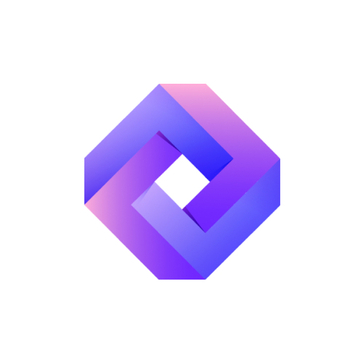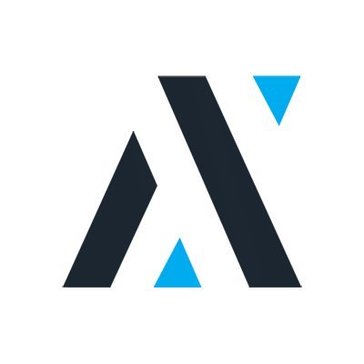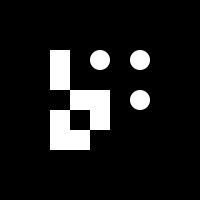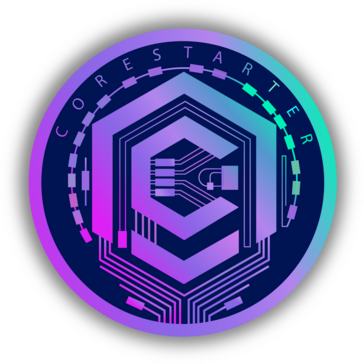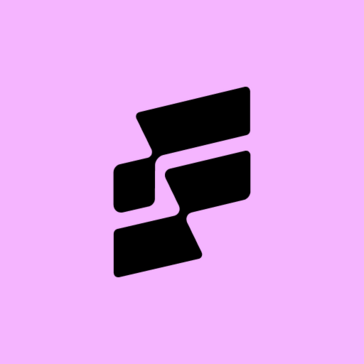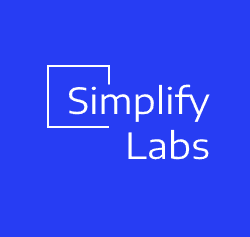Best Blockchain Platforms
Best Blockchain Platforms At A Glance
G2 takes pride in showing unbiased reviews on user satisfaction in our ratings and reports. We do not allow paid placements in any of our ratings, rankings, or reports. Learn about our scoring methodologies.
- Overview
- User Satisfaction
- Seller Details
- 86% Small-Business
- 10% Enterprise
6,507,310 Twitter followers
- Overview
- User Satisfaction
- Seller Details
Ethereum is a platform and a programming language that makes it possible for any developer to build and publish next-generation decentralized applications.
- Computer Software
- 78% Small-Business
- 20% Mid-Market
1,854 Twitter followers
- Overview
- Pros and Cons
- User Satisfaction
- Seller Details
Kaleido is the award-winning, enterprise-grade platform making blockchain and digital assets radically simple for organizations to adopt. Kaleido provides a complete stack for building blockchain-ba
- 58% Small-Business
- 33% Enterprise
4,608 Twitter followers
- Overview
- User Satisfaction
- Seller Details
Platform 6 provides all the off-chain features and services required to develop, package and run enterprise-class blockchain applications.
- 45% Mid-Market
- 45% Small-Business
7 Twitter followers
- Overview
- User Satisfaction
- Seller Details
Blockchain is a shared , immutable ledger for recording the history of transactions. It fosters a new generation of transactional applications that establish trust , accountability and transparency-fr
- 55% Small-Business
- 36% Mid-Market
710,022 Twitter followers
- Overview
- User Satisfaction
- Seller Details
We make it easy for blockchain teams and users to launch nodes and get access to a large range of blockchain protocols. We have expertise in managed infrastructure hosting for the Substrate/Polkadot n
- 60% Small-Business
- 30% Enterprise
127,074 Twitter followers
- Overview
- User Satisfaction
- Seller Details
Blockstream offers Bitcoin and blockchain technology.
- 69% Small-Business
- 25% Mid-Market
205,805 Twitter followers
- Overview
- User Satisfaction
- Seller Details
Azure provides a rapid, low-cost, low-risk, and fail-fast platform for organizations to collaborate on by experimenting with new business processes and it's all backed by a cloud platform with the lar
- 50% Mid-Market
- 29% Enterprise
14,002,134 Twitter followers
- Overview
- User Satisfaction
- Seller Details
Corda is a blockchain and smart contract platform.
- Banking
- Information Technology and Services
- 50% Small-Business
- 36% Enterprise
13,387 Twitter followers
- Overview
- User Satisfaction
- Seller Details
Hyperledger is a collaborative effort created to advance blockchain technology by identifying and addressing important features for a cross-industry open standard for distributed ledgers that can tran
- 56% Small-Business
- 25% Enterprise
223 Twitter followers
- Overview
- User Satisfaction
- Seller Details
BitFury is a fully integrated Bitcoin Blockchain security and infrastructure provider.
- 60% Small-Business
- 30% Mid-Market
20,762 Twitter followers
- Overview
- User Satisfaction
- Seller Details
QANplatform is the Quantum-resistant hybrid blockchain platform. Build your software applications like DApps or Defi and run business processes on blockchain in 5 minutes with QANplatform. 1) The Pro
- 78% Small-Business
- 22% Mid-Market
- Overview
- User Satisfaction
- Seller Details
BlockApps mission is to restore to digital transactions, the reliability and efficiency of face-to-face interactions through secure and connected information.It's a Blockchain platform for rapid devel
- 79% Small-Business
- 14% Mid-Market
452 Twitter followers
- Overview
- User Satisfaction
- Seller Details
Launched in Q4, 2019, GetBlock is one of the largest blockchain infrastructure providers. It offers RPC nodes of 50+ blockchains including the likes of Ethereum, Bitcoin, Polygon, BNB Smart Chain and
- 82% Small-Business
- 27% Mid-Market
24,534 Twitter followers
- Overview
- User Satisfaction
- Seller Details
Oracle Blockchain Platform is a comprehensive distributed ledger cloud platform to provision blockchain networks and deploys & runs smart contracts to update and query the ledger.
- 57% Small-Business
- 29% Enterprise
822,470 Twitter followers
- Overview
- Pros and Cons
- User Satisfaction
- Seller Details
TransferChain provides the safest cloud storage, file transfer, and file request capabilities for businesses - through zero-knowledge encryption, file splitting, distributed cloud architectures, and b
- 82% Small-Business
- 9% Enterprise
875 Twitter followers
- Overview
- User Satisfaction
- Seller Details
Blockchain-as-a-Service Luniverse, Enterprise Blockchain Cloud with scalable and stable chain-based development and operation
- 70% Small-Business
- 30% Mid-Market
1,209 Twitter followers
- Overview
- User Satisfaction
- Seller Details
Bitquery provides indexed blockchain data for over 40 blockchains, giving users access to +historical and real-time data through Graphql APIs. The data includes information on token trades, transfers,
- 80% Small-Business
- 20% Mid-Market
5,996 Twitter followers
- Overview
- Pros and Cons
- User Satisfaction
- Seller Details
Ultimately, blockchains are just tools used to solve customer problems. Guardtime’s mission in life is to leverage the tools we have built, work with partners and build the highest quality enterprise
- 63% Mid-Market
- 25% Small-Business
2,041 Twitter followers
- Overview
- User Satisfaction
- Seller Details
NEM offers a blockchain platform designed and coded from the ground up for scale and speed.
- 60% Mid-Market
- 40% Small-Business
323,743 Twitter followers
- Overview
- User Satisfaction
- Seller Details
𝐀𝐞𝐪𝐮𝐚𝐥𝐢𝐬 is a pioneer in Blockchain development, enabling traceable 𝐒𝐮𝐩𝐩𝐥𝐲 𝐂𝐡𝐚𝐢𝐧 in various verticals, 𝐅𝐢𝐧𝐚𝐧𝐜𝐢𝐚𝐥 𝐭𝐫𝐚𝐧𝐬𝐚𝐜𝐭𝐢𝐨𝐧 platforms, 𝐞𝐊𝐘𝐂, 𝐇𝐞𝐚𝐥𝐭𝐡 𝐝𝐚𝐭𝐚 exchanges and much more.
- 50% Mid-Market
- 50% Small-Business
36 Twitter followers
- Overview
- User Satisfaction
- Seller Details
Stark Drones Corporation builds various technologies related to Data, Wireless and Energy transmission.
- 100% Small-Business
- Overview
- User Satisfaction
- Seller Details
akaChain is an enterprise Blockchain-as-a-Service platform. Based on Hyperledger Fabric, akaChain provides a portable solution for deployment on different infrastructures, software development kits fo
- 67% Small-Business
- 33% Mid-Market
1,801 Twitter followers
- Overview
- User Satisfaction
- Seller Details
A new initiative to help developers leverage Binance infrastructure for their ideas and projects.
- 100% Small-Business
18,685 Twitter followers
- Overview
- User Satisfaction
- Seller Details
Centrifuge is an open, decentralized platform to connect the global financial supply chain.
- 33% Enterprise
- 33% Mid-Market
82,592 Twitter followers
- Overview
- User Satisfaction
- Seller Details
Crypto APIs offers scalable Web 3 infrastructure for crypto and blockchain applications. Its product suite includes Wallet as a Service, Blockchain Events, Blockchain Data, Blockchain Automations, Blo
- Computer Software
- 72% Small-Business
- 22% Mid-Market
1,804 Twitter followers
- Overview
- User Satisfaction
- Seller Details
OTB is a blockchain application underpinned by smart contract and is simple to adopt, easy to use, and quick to come onboard for any communities. OTB main functionalities: • Register files (hashes on
- 100% Small-Business
- Overview
- User Satisfaction
- Seller Details
We make it easy for blockchain teams and users to launch nodes and get access to a large range of blockchain protocols. We have expertise in managed infrastructure hosting for the Substrate/Polkadot n
- 67% Mid-Market
- 33% Small-Business
127,074 Twitter followers
- Overview
- User Satisfaction
- Seller Details
Tendermint offers advanced implementation of BFT consensus algorithm and PoS cryptoeconomics for the blockchain industry.
- 75% Small-Business
- 25% Mid-Market
147 Twitter followers
- Overview
- User Satisfaction
- Seller Details
Zeeve is an enterprise-grade low-code Blockchain Infrastructure-as-a-Service platform, compliant with ISO 27001, SOC2 Type II, and GDPR standards. We are the leading provider of Rollups-as-a-Service,
- 33% Mid-Market
- 33% Enterprise
10,742 Twitter followers
- Overview
- User Satisfaction
- Seller Details
Algorand is an open-source software company building technical innovation for the borderless economy with a platform that delivers decentralization, scalability and security. Algorand’s first-of-its
- 50% Enterprise
- 50% Small-Business
358,966 Twitter followers
- Overview
- User Satisfaction
- Seller Details
Launch your node on a public blockchain network or join a private network in three clicks. Blockdaemon is the only multi-cloud platform that supports the leading blockchain protocols.
- 50% Enterprise
- 50% Small-Business
589 Twitter followers
- Overview
- User Satisfaction
- Seller Details
ConsenSys Quorum enables enterprises to leverage Ethereum for their high-value blockchain applications. Businesses can rely on the Quorum open-source protocol layer and integrate on top of it product
- 100% Small-Business
- 50% Enterprise
336,853 Twitter followers
- Overview
- User Satisfaction
- Seller Details
- 50% Enterprise
- 50% Mid-Market
- Overview
- User Satisfaction
- Seller Details
Hedera is a decentralized public network where anyone can carve out a piece of cyberspace to transact, play, and socialize in a secure, trusted environment. Hedera network services provide APIs to man
- 50% Small-Business
- 50% Mid-Market
- Overview
- User Satisfaction
- Seller Details
Anyblock’s Software-as-a-Service (SaaS) provides Blockchain RPC Access for Bitcoin, Ethereum & many more blockchains. We provide a fast and reliable blockchain API, query time is usually less than
- 50% Small-Business
- Overview
- User Satisfaction
- Seller Details
MultiChain is a open source blockchain platform which helps organizations to build and deploy blockchain applications with speed.
- 50% Enterprise
- 50% Small-Business
3,523 Twitter followers
- Overview
- User Satisfaction
- Seller Details
Stellar is an open-source network for currencies and payments. Stellar makes it easy to create, send and trade digital representations of all forms of money—dollars, pesos, bitcoin, pretty much anythi
- 100% Mid-Market
- Overview
- User Satisfaction
- Seller Details
Stezy is a "Do it yourself Blockchain Platform", which helps enterprises to integrate and deploy blockchain and smart contracts seamlessly without much friction across industry verticals with ease.
- 50% Mid-Market
- 50% Small-Business
- Overview
- User Satisfaction
- Seller Details
Stratis is a powerful and flexible Blockchain Development Platform designed for the needs of real world enterprise and financial services.
- 50% Mid-Market
- 50% Small-Business
213,425 Twitter followers
- Overview
- User Satisfaction
- Seller Details
Tatum is a unified framework that provides developers with 300+ features to build dApps on 40+ supported blockchain protocols with no previous web3 experience. All features are available through the T
- 75% Small-Business
- 25% Mid-Market
- Overview
- User Satisfaction
- Seller Details
- 100% Small-Business
- Overview
- User Satisfaction
- Seller Details
Xooa empowers users of all blockchain expertise levels to build NFT marketplaces and other blockchain apps on the cloud fast through a streamlined and easy-to-use interface. Take advantage of Xooa's l
- 50% Small-Business
- 50% Mid-Market
- Overview
- User Satisfaction
- Seller Details
Achain is a public blockchain platform that enables developers of all levels to issue tokens, create smart contracts, build decentralized applications and blockchain systems. Achain is committed to bu
- 100% Small-Business
- Overview
- User Satisfaction
- Seller Details
BigchainDB allows developers and enterprise to deploy blockchain proof-of-concepts, platforms and applications with a scalable blockchain database.
- 100% Small-Business
7,642 Twitter followers
- Overview
- User Satisfaction
- Seller Details
Our blockchain development services include consulting on strategies and use cases, developing decentralized applications (dApps) and smart contracts, integrating blockchain into existing systems, ens
- 100% Mid-Market
- Overview
- User Satisfaction
- Seller Details
The Blockchain Gateway by unchain.io offers an enterprise-grade solution to enable organisations to integrate their applications and devices with blockchain networks in an easy, fast and secure manner
- 100% Small-Business
331 Twitter followers
- Overview
- User Satisfaction
- Seller Details
- 100% Small-Business
- Overview
- User Satisfaction
- Seller Details
Enabling organisations to retain control.
- 100% Enterprise
724 Twitter followers
- Overview
- User Satisfaction
- Seller Details
I/O Coin is an ongoing open source blockchain scientific project currently being developed by a team of Freelance / volunteer blockchain and security experts.
- 100% Small-Business
- Overview
- User Satisfaction
- Seller Details
- 100% Small-Business
- Overview
- User Satisfaction
- Seller Details
LifeHash was founded in July of 2021 and creates blockchain solutions for companies and organisations in several industries, such as insurance, supply chain and legal. The company has over 25 years of
- 100% Small-Business
- Overview
- User Satisfaction
- Seller Details
MintMe.com Coin is a transparent, egalitarian, web-minable blockchain platform, made to support DApps and secure ERC20 & ERC223 smart contracts using websites and internet of things. Mintme.com Co
- 100% Small-Business
- Overview
- User Satisfaction
- Seller Details
- 100% Small-Business
- Overview
- User Satisfaction
- Seller Details
Nxt Platform is a blockchain application platform.
- 100% Small-Business
65,505 Twitter followers
- Overview
- User Satisfaction
- Seller Details
The true interoperable blockchain solution Oneledger is a blockchain as a Service (Baas) options supplier founded by Fortune 500 executives and Forbes executive members, partnered with IBM and Google
- 100% Mid-Market
- Overview
- User Satisfaction
- Seller Details
- 100% Small-Business
- Overview
- User Satisfaction
- Seller Details
SettleMint is the #1 high-performance, low-code platform for rapid blockchain innovation SettleMint is the world’s most powerful in-browser blockchain development platform. Rapidly build and deploy bl
- 50% Enterprise
- 50% Small-Business
- Overview
- User Satisfaction
- Seller Details
Easiest way to buy and sell bitcoin
- 200% Small-Business
15,397 Twitter followers
- Overview
- User Satisfaction
- Seller Details
Synthetix is the backbone for derivatives trading in DeFi, allowing anyone, anywhere to gain on-chain exposure to a vast range of assets.
- 100% Small-Business
- Overview
- User Satisfaction
- Seller Details
- 100% Enterprise
1,125 Twitter followers
- Overview
- User Satisfaction
- Seller Details
TimeSeal offers a groundbreaking solution, introducing the world to the unparalleled security of blockchain-based timestamps. By leveraging the immutable nature of blockchain technology, TimeSeal en
- 100% Mid-Market
- Overview
- User Satisfaction
- Seller Details
- 100% Small-Business
- Overview
- User Satisfaction
- Seller Details
Powered by the 1inch Labs, the 1inch Developer Portal is a Web3 cloud SaaS (software as a service) platform offering multiple software services. The platform enables developers to improve their DeFi a
1,361,696 Twitter followers
- Overview
- User Satisfaction
- Seller Details
- Overview
- User Satisfaction
- Seller Details
AERGO is an open-source hybrid blockchain platform for business. AERGO’s capabilities can improve your business efficiency and create new opportunities. Built for businesses, partners, and developers
- Overview
- User Satisfaction
- Seller Details
Aragon is an open-source software used to maintain and create decentralized autonomous organizations (DAOs) on the Ethereum blockchain.
104,713 Twitter followers
- Overview
- User Satisfaction
- Seller Details
Aura Network is a high-performance L1 tailored for emerging countries with modular tech stacks, driving Blockchain mass adoption in emerging markets.
- Overview
- User Satisfaction
- Seller Details
Axoni is a New York-based technology firm that specializes in blockchain infrastructure whose clients include many of the world's largest financial institutions and capital markets infrastructure comp
2,234 Twitter followers
- Overview
- User Satisfaction
- Seller Details
Brale Base allows financial institutions and other regulated entities create and manage their own stablecoins on multiple blockchains through a simple UI.
- Overview
- User Satisfaction
- Seller Details
Future CX Pty Ltd is a Blockchain Development and IT Software Solutions and Consultancy Company registered in 2019 based in Melbourne Australia and its Back office in Colombo Sri Lanka.
- Overview
- User Satisfaction
- Seller Details
Binance Clone Script is a ready-made cryptocurrency exchange platform like Binance, developed with additional user-friendly features, advanced technology, and highly secured for launching your own cry
318 Twitter followers
- Overview
- User Satisfaction
- Seller Details
- Overview
- User Satisfaction
- Seller Details
Chia's enterprise-grade blockchain solutions enable enterprise organizations to effectively manage data and applications on a highly secure, decentralized network.
- Overview
- User Satisfaction
- Seller Details
- Overview
- User Satisfaction
- Seller Details
DEIP is building Open Innovation Network a digital ecosystem helping the participants of innovation processes to collaborate and leverage each other's expertise and resources. The company provides a r
- Overview
- User Satisfaction
- Seller Details
- Overview
- User Satisfaction
- Seller Details
- Overview
- User Satisfaction
- Seller Details
- Overview
- Pros and Cons
- User Satisfaction
- Seller Details
- 100% Mid-Market
441,508 Twitter followers
- Overview
- User Satisfaction
- Seller Details
441,508 Twitter followers
- Overview
- User Satisfaction
- Seller Details
- Overview
- User Satisfaction
- Seller Details
Ternio created Lexicon - the only scalable blockchain verified by a 3rd party - to be able to meet the needs of any possible scenario or use-case. It will allow for a totally decentralized, simple to
- Overview
- User Satisfaction
- Seller Details
The multi-chain liquidity gateway. A DeFi middleware to build crypto-enabled businesses. Aggregating decentralized financial infrastructure and required data sources to allow engaging in the multi-cha
- Overview
- User Satisfaction
- Seller Details
Lukka is a team of top-performing data experts that are transforming post-trade blockchain data into easy-to-use information for business operations.
- Overview
- Pros and Cons
- User Satisfaction
- Seller Details
Nominis Vue is a compliance software solution designed to automate AML (Anti-Money Laundering) and KYC (Know Your Customer) processes for businesses in the web3 and blockchain space. It helps organiza
- 100% Enterprise
- Overview
- User Satisfaction
- Seller Details
NuCypher is a security and encryption platform for distributed systems, including blockchain, big data, cloud, and internet of things. Our core technology, proxy re-encryption is a type of public-key
- Overview
- User Satisfaction
- Seller Details
Ocyan enables the disruption of traditional industries with emerging technologies. Providing an end-to-end Cloud Operating System for enterprise blockchains is only the beginning.
- Overview
- User Satisfaction
- Seller Details
Quant Network is a technology provider enabling trusted digital interaction, helping create a secure digital future to the benefit of enterprises, regulators, governments, and individuals. Recognised
- Overview
- User Satisfaction
- Seller Details
Paradigm has a Ready-to-go proven hack-tested Web App solution that works on all devices and can plug your business into web profits while meeting your compliance and prudential risk requirements with
- Overview
- User Satisfaction
- Seller Details
- Overview
- User Satisfaction
- Seller Details
- 100% Small-Business
- Overview
- User Satisfaction
- Seller Details
- Overview
- User Satisfaction
- Seller Details
An externally audited enterprise-grade blockchain platform secure today from the quantum computing advances of tomorrow.
- Overview
- User Satisfaction
- Seller Details
The Quartz, The Smart Ledgers are targeted at helping organizations across multiple domains leverage blockchain meaningfully for their businesses.
582,501 Twitter followers
- Overview
- User Satisfaction
- Seller Details
- Overview
- User Satisfaction
- Seller Details
- Overview
- User Satisfaction
- Seller Details
- Overview
- User Satisfaction
- Seller Details
Signal21 offers institutions and individuals with Bitcoin research and data, encompassing Layer 1, Layer 2, and Dapps, all conveniently accessible in a single platform. This integrated solution facili
1,999 Twitter followers
- Overview
- User Satisfaction
- Seller Details
Simplify Labs is an innovative company that provides modern technological solutions for launching a cryptocurrency business. The main specialization is the creation of ready-made software products tha
Learn More About Blockchain Platforms
What are Blockchain Platforms?
Blockchain platforms are software solutions that allow businesses to build applications that rely on blockchain technology. Blockchain technology refers to the use of a distributed, immutable ledger that documents transactions, activities, and resource movement across a network. Companies utilize the ledger in various ways, and a blockchain-based ledger system can be applied to any application that relies on any kind of transaction.
Blockchain platforms operate as a development platform with an integrated distributed ledger. This ledger is essentially an encrypted storage space for all kinds of data. The integrated data is then used to help develop consensus mechanisms that will be used to validate and approve transactions.
The ledger references integrated data and previously completed transactions to prevent fraud and ensure complete historical visibility. Companies can also perform audits of the ledger should suspicion of fraud or misuse arise. While these functions are some of the core features provided by blockchain platforms, they can still be customized by developers to possess additional features, unique user interfaces, and use cases.
What Types of Blockchain Platforms Exist?
Blockchain technology can generally be defined into four segments or protocols. These four main blockchains categories are public blockchains, private blockchains, consortium blockchains, and hybrid blockchains.
Public blockchain
Public blockchains are open source, decentralized solutions that anyone can use for transactions, development, or mining. They are, in theory, completely transparent and display each transaction openly for public examination. These ecosystems can not be shut down as there is no centralized control over its availability. Without that centralized authority, there are security concerns, but none about transparency and audibility.
Private blockchain
Private blockchains require permissions to perform transactions, development, or investigation. They’re typically built and utilized by enterprise businesses that do not want confidential information displayed on a public blockchain. This kind of blockchain is easier to secure and monitor but more difficult to investigate or audit.
Hybrid blockchain
Hybrid blockchains can utilize any combination of features offered by both public and private blockchains. This provides companies flexibility in terms of governance and security without a complete loss of transparency. For example, a business could limit the blockchain's historical ledger to mask or hide sensitive information without completely closing the transaction history to others using the blockchain.
Consortium blockchain
Consortium or federated blockchains limit participants to preselected user groups. Consortium blockchains are mostly beneficial for smaller groups with trusted users. This allows some centralized authority over access to the blockchain, increasing transaction speed, throughput, and privacy. These increased benefits also preserve transparency and visibility for those approved to participate.
What are the Common Features of Blockchain Platforms?
The following are some core features within blockchain platforms that can help users build, develop, and deploy blockchain-based solutions:
Development: Development features include everything a developer would need to build a fully-functional blockchain application. This includes developer environments, asset libraries, APIs, templates, and more.
Governance: Governance features vary depending on the type of blockchain in use but typically refer to the ability to control user access on private blockchains or peer-to-peer networks and approvals for consortium blockchains.
Scalability: Scalability is an important feature to consider when choosing a type of blockchain. For example, consortium solutions with small, trusted networks will not require substantial scalability, but applications utilizing a public blockchain will require scalability to prevent performance, throughput, and availability issues.
Workflows: Workflow features will help businesses build out the transaction process. Pre-made or customizable workflows can provide a basic process for trading, validation, and settlement and allow for additional steps unique to a custom blockchain solution.
Peer-to-peer networks: Access to large peer-to-peer networks is not always a priority but can be if developing a solution that requires consistent transactions. These networks can also be used to identify untrustworthy parties that may threaten the network.
What are the Benefits of Blockchain Platforms?
Blockchain platforms can provide various real-world solutions that may be unique to any business or industry. Some of the most common, horizontal solutions include the development and use of smart contracts, cryptocurrencies, and decentralized applications (dApps)
Smart contracts: Smart contracts are one of the two most well-established uses of blockchain technologies. Smart contracts, as you might imagine, are contracts with integrated, intelligent features that can ensure certain parameters are met before self-executing a contract. Companies can use blockchain platforms to build smart contracts for any purpose. For example, a real estate developer could program a smart contract to automatically close a deal upon parties meeting requirements for appraisal, inspection, and mortgage approval.
Cryptocurrencies: Cryptocurrencies are the other original use for blockchain technology. These digital assets are used in place of traditional fiat currencies like the US dollar or the euro. Cryptocurrency coins are “mined” by users with access to the blockchain and rewarded after solving complex mathematical problems.
Decentralized applications (dApps): dApps are programs running on a blockchain network. These applications can increase privacy and reduce censorship for users as there is no central authority with access to their information. Various dApps have emerged in the form of exchanges, games, financial tools, and video games, to name a few.
Non-fungible tokens (NFTs): NFTs are digital assets such as art, videos, or music that utilize a blockchain ledger to generate unique, verifiable ownership identifiers for each individual asset. Artists, companies, or content creators can use these to create one-of-a-kind digital assets their fanbase or user community can buy and trade.
Software Related to Blockchain Platforms
Related solutions that can be used together with blockchain platforms include:
Blockchain as a service: Blockchain as a service solutions provide a blockchain platform for companies and individuals to develop applications and solutions that can be deployed on preconfigured, third-party cloud infrastructure. These tools provide less extensibility and centralized control than a pure-play blockchain platform but can save time on development and money on deployment and hosting.
Cryptocurrency software: Cryptocurrency solutions do rely on blockchain technology at their core but don’t provide the development capabilities of a blockchain platform. There are many cryptocurrency applications, but they all relate to the mining, trading, and storing digital currencies.
Smart contracts software: Like cryptocurrencies, smart contracts rely on blockchain technology and can be developed using a blockchain platform but pertain to a specified use of the highly variable technology. Most of the tools in this category provide prebuilt but customizable smart contracts that run on a specific, existing blockchain network.
Challenges with Blockchain Platforms
Blockchain solutions can come with their own set of challenges.
Speed and scalability: There is enormous variance in the speed and scalability of different blockchains. A blockchain’s speed to settlement largely depends on the platform’s ability to handle multiple transactions at once, the number of transactions required to achieve consensus, and the number of users trading at any given time.
Security and privacy: While blockchain technology is often thought of as an inherently private technology concept, this is not always the case. For example, a transaction made on a public blockchain may permanently and publicly archive information related to both parties if programmed to do so. Since private blockchains offer increased privacy at the expense of transparency, there is often a compromise that developers must make in terms of public visibility and user privacy.
Efficiency: For all the examples of potential blockchain-based applications and solutions, there is not as much discussion of whether or not it is necessary to incorporate blockchain functionality. For example, it could add transparency and auditability to an existing transactional process but could slow transactions to half their normal rate. As with any emerging technology, the buzz-worthy technological concept can sound better in theory than it performs in practice.
How to Buy Blockchain Platforms
Requirements Gathering (RFI/RFP) for Blockchain Platforms
Companies considering adopting a blockchain platform for their business should identify their goal and the blockchain protocol capable of meeting their needs. Companies must understand whether they want to utilize a public and open source blockchain ledger with minimal centralized control or governance, a centrally managed blockchain platform, a consortium model, or a hybrid model incorporating aspects of each.
Compare Blockchain Platform Products
Create a long list
The long list should include the potential blockchain platforms capable of facilitating the number of transactions required at a speed the company desires. Companies can identify all possible options using resources such as analyst reports, software review sites, and other industry-specific information sources. Look for prior use cases as well. While your solution may be fairly unique in theory, it’s helpful to know that the platform you are considering has been used to successfully develop applications with similar features and functions in the past.
Create a short list
Narrow the long list by identifying must-have integrations and features and bridging support. Evaluating these factors will ensure the solution you choose operates at the scale desired but also extends functionality into other applications and provides users the features or data they require. If the list must be shortened further, a few obvious factors include price, energy usage, and P2P networks.
Conduct demos
When conducting demos of each solution, it is important to ask questions about the platform itself, the skills required to operate it, and the must-have features you require. Your existing staff should be able to learn the tool quickly and utilize their already existing skills without having to learn new coding languages or build out numerous custom integrations. Additionally, consider the platform’s usability and learning curve, and look out for performance issues and other inefficiencies.
Selection of Blockchain Platforms
Choose a selection team
The selection team should include someone from the development team who will end up using the tools and product specialists who will be pivotal in the execution and development of your solution. Other parties from leadership, finance, and marketing teams can also be considered depending on their involvement in planning, releasing, and promoting future blockchain-based applications.
Negotiation
Development teams and their ability to adopt the application will be key to its success. Individuals leading those teams and other parties in charge of spending should provide a good balance in determining what solution will meet the team and company’s desired requirements while remaining within budget.
Final decision
Once price points are set, it’s important to involve developers and other end users in finalizing the decision. If the platform is well liked, well utilized, and provides satisfactory results, the buyer can take that as a sign that they’ve made the right call. If not, it may be time to consider other options.





















